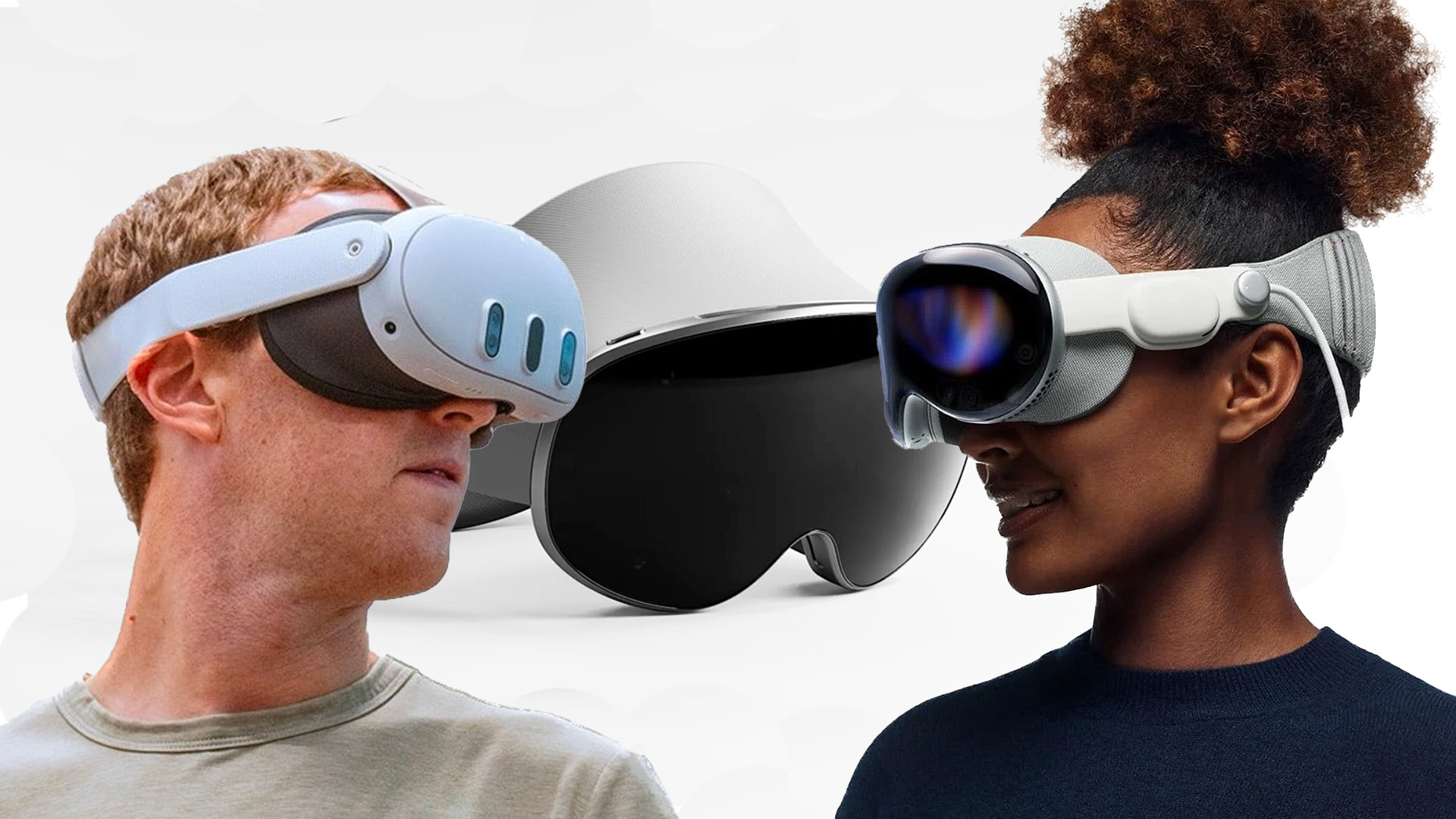Image: Photoshop by MIXED (Meta/Samsung/Apple)
Der Artikel kann nur mit aktiviertem JavaScript dargestellt werden. Bitte aktiviere JavaScript in deinem Browser und lade die Seite neu.
MIXED reader Stefan Kron wanted to know which XR operating system will dominate the industry in the future. Here are our thoughts.
Every Monday, we answer a question from our readers. Send your question to tomislav@mixed.de with “Question” in the subject line, and with any luck, we’ll answer it the following Monday.
This week’s question comes from our reader Stefan Kron:
Which XR operating system do you think will dominate in the future?
Hello Stefan,
After last week’s look at which XR technology (VR, MR, AR) will dominate the future, this article will focus on the prospects for success of Meta, Apple, and Google.
You ask about the dominant XR operating system of the future. Will it be Meta’s Horizon OS, Apple’s visionOS, or Google’s Android XR? One thing is clear: whoever delivers the dominant XR OS will dominate XR itself, just as Apple and Google dominate the smartphone market today with iOS and Android.
In this article, I will focus on headsets and the three operating systems Horizon OS, visionOS, and Android XR. I won’t talk about AR glasses at this point. These types of devices will require a separate operating system and are too far away to make any meaningful predictions about their future.
But let’s get to your question.
Horizon OS currently dominates the market. Meta has sold over 20 million Quest headsets, Apple has sold less than 500,000 Vision Pro headsets, and Google doesn’t even have an Android XR-powered headset on the market yet. The Project Moohan headset, developed with Samsung, will be the first device to use Android XR and will be released later this year. Other Android XR devices from manufacturers such as Sony, Lynx and Xreal will follow at a later date.
I believe that Meta’s head start has enormous value. The first company to enter and claim a market always has a huge advantage over latecomers. Meta has also collected a lot of feedback from users. This is valuable knowledge that can be incorporated into future products.
Meta’s Achilles heel is software. Despite recent improvements, Horizon OS still lags behind visionOS in many ways and doesn’t offer the deep integration into an existing hardware and software ecosystem that is a key feature of Apple Vision. This is important because users don’t want to disconnect from the app ecosystem they know when they put on a headset. With Android XR, Google will leverage the same advantages as Apple and strive for deep platform integration with Android devices.
However, I am skeptical that Apple and Google will be able to take much market share from Meta on this basis alone. In my opinion, “backwards compatibility” with today’s dominant ecosystems is an important feature, but not the main selling point for headsets. At least not until the devices become a real alternative to laptops and desktops in terms of price, performance, and usability. We are still a long way from that.
A major hurdle for Apple and Google will be gaining the trust and support of the VR developer community. Meta has invested billions in developer funding and hardware subsidies, creating a VR market that is profitable for many developers. What have Apple and Google done for developers? Apple has released a headset for the rich, while Google has turned its back on the VR market before and is notorious for quickly scrapping products that are not profitable. The VR developer community is undoubtedly hungry for alternative platforms, but it remains to be seen if Apple and Google are willing to invest in the headset market for the long term (10+ years).
I don’t think Meta has to worry about major headset competition from Apple and Google in the next five years. As long as these companies offer devices that cost well over $1,000 and have the form factor of today’s headsets, Meta will remain dominant. Only when headsets get much smaller and lighter, and start to compete with laptops and desktop computers, will consumers be willing to spend that kind of money.
I can’t say if and when that will happen. But as long as headsets running visionOS and Android XR don’t sell better than those running Horizon OS, Meta has nothing to worry about.
Kind regards,
Tomislav
Interested in VR and AR? Then follow us on Facebook or X or share your experience in the comments. For feedback, topic suggestions, or other ideas, please email us at hello@mixed-news.com.
Note: Links to online stores in articles can be so-called affiliate links. If you buy through this link, MIXED receives a commission from the provider. For you the price does not change.
